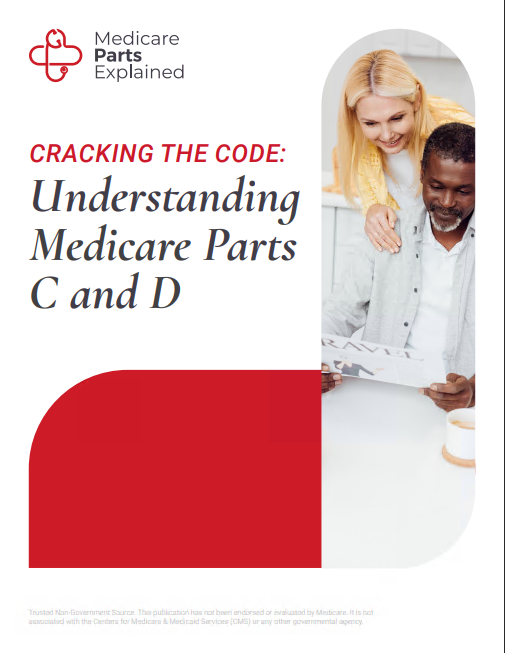Identifying the Worst Medicare Advantage Plans for Seniors
Introduction to Medicare Advantage Plans
Medicare Advantage plans offer comprehensive healthcare coverage to seniors, providing benefits beyond Original Medicare (Parts A and B). While many Medicare Advantage plans provide valuable benefits and services, it’s essential for seniors to be aware of potential pitfalls and drawbacks when selecting a plan. In this guide, we’ll explore some of the factors that may contribute to identifying the worst Medicare Advantage plans for seniors, helping beneficiaries make informed decisions about their healthcare coverage.
Factors to Consider When Assessing Medicare Advantage Plans
When evaluating Medicare Advantage plans, seniors should consider several key factors to determine whether a plan is suitable for their needs:
- Network Coverage: Some Medicare Advantage plans have restrictive provider networks, limiting seniors’ access to preferred doctors, specialists, and healthcare facilities. Seniors should ensure that their preferred healthcare providers are included in the plan’s network to avoid disruptions in care.
- Cost-Sharing: Medicare Advantage plans often involve cost-sharing, including premiums, deductibles, copayments, and coinsurance. Seniors should carefully review the plan’s cost-sharing requirements to understand their potential out-of-pocket expenses for covered services.
- Coverage Limitations: Medicare Advantage plans may have limitations on coverage for certain services or treatments, such as prior authorization requirements, step therapy protocols, or quantity limits on prescription medications. Seniors should be aware of these limitations and how they may impact their access to care.
- Additional Benefits: While some Medicare Advantage plans offer extra benefits such as prescription drug coverage, vision care, dental care, and wellness programs, others may provide minimal additional benefits or none at all. Seniors should assess whether the plan’s additional benefits align with their healthcare needs and preferences.
- Quality Ratings: Medicare Advantage plans are rated based on quality measures such as customer satisfaction, preventive care, and management of chronic conditions. Seniors can review plan ratings on the Medicare website to assess the plan’s performance and reputation.
Common Pitfalls of Medicare Advantage Plans for Seniors
Despite the benefits of Medicare Advantage plans, there are several common pitfalls that seniors should be aware of when selecting a plan:
- High Out-of-Pocket Costs: Some Medicare Advantage plans have high deductibles, copayments, and coinsurance for covered services, leading to substantial out-of-pocket expenses for seniors, especially those with chronic health conditions or complex medical needs.
- Limited Provider Networks: Medicare Advantage plans with narrow provider networks may restrict seniors’ access to preferred healthcare providers, forcing them to switch doctors or travel long distances for care.
- Coverage Restrictions: Medicare Advantage plans may impose restrictions on coverage for certain services, treatments, or medications, requiring seniors to obtain prior authorization or meet specific criteria to access care.
- Lack of Additional Benefits: Some Medicare Advantage plans offer minimal additional benefits beyond Original Medicare, providing little value to seniors seeking comprehensive healthcare coverage.
- Poor Quality Ratings: Medicare Advantage plans with low-quality ratings may indicate subpar performance in areas such as customer satisfaction, preventive care, and management of chronic conditions, raising concerns about the plan’s overall reliability and effectiveness.
Identifying the Worst Medicare Advantage Plans for Seniors
While there is no definitive list of the worst Medicare Advantage plans for seniors, several warning signs may indicate a subpar plan:
- High Complaint Rates: Medicare Advantage plans with high complaint rates from enrollees or low ratings in customer satisfaction surveys may signal issues with the plan’s quality of care, customer service, or coverage.
- Limited Provider Choices: Medicare Advantage plans with narrow provider networks or frequent changes to network providers may limit seniors’ access to quality healthcare and disrupt continuity of care
- High Cost-Sharing Requirements: Medicare Advantage plans with excessive deductibles, copayments, or coinsurance for covered services may impose financial burdens on seniors, making it difficult to afford essential healthcare.
- Coverage Limitations: Medicare Advantage plans with extensive coverage restrictions, such as prior authorization requirements or quantity limits on prescription medications, may hinder seniors’ ability to access necessary medical treatments and services.
- Poor Quality Ratings: Medicare Advantage plans with consistently low-quality ratings or below-average performance on quality measures may indicate systemic issues with the plan’s administration, management, or delivery of care.
Tips for Choosing the Right Medicare Advantage Plan
To avoid selecting one of the worst Medicare Advantage plans for seniors, beneficiaries should follow these tips:
- Research Plan Options: Compare multiple Medicare Advantage plans in your area to find the one that best meets your healthcare needs and preferences.
- Review Plan Ratings: Check the quality ratings and performance scores of Medicare Advantage plans on the Medicare website to assess their reliability and effectiveness.
- Verify Provider Network: Confirm that your preferred healthcare providers, including doctors, specialists, and hospitals, are included in the plan’s network to ensure continuity of care.
- Consider Cost-Sharing: Evaluate the plan’s cost-sharing requirements, including premiums, deductibles, copayments, and coinsurance, to understand your potential out-of-pocket expenses.
- Assess Additional Benefits: Determine whether the plan offers additional benefits such as prescription drug coverage, vision care, dental care, and wellness programs that align with your healthcare needs and lifestyle.
By carefully evaluating these factors and considering your individual healthcare needs and preferences, you can select a Medicare Advantage plan that provides comprehensive coverage and high-quality care.
Conclusion: Making Informed Choices About Medicare Advantage Plans
While Medicare Advantage plans offer valuable benefits and coverage options for seniors, it’s essential to be vigilant when selecting a plan to avoid potential pitfalls and drawbacks. By considering factors such as network coverage, cost-sharing, coverage limitations, additional benefits, and plan ratings, seniors can make informed decisions about their healthcare coverage and choose a plan that meets their needs and preferences. By taking the time to research plan options, verify provider networks, assess cost-sharing requirements, and review plan ratings, seniors can avoid selecting one of the worst Medicare Advantage plans and enjoy comprehensive, high-quality care. Ready to learn more about Medicare Advantage and enrollment? Download our comprehensive eBook or connect with licensed insurance agents in Medicare for assistance.




